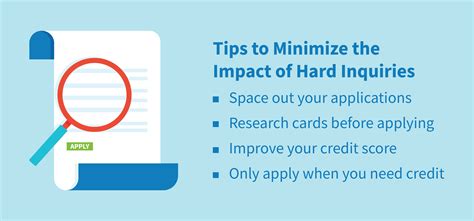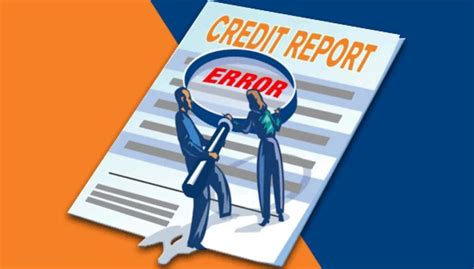Are you looking to improve your financial standing and secure better loan options for your future needs? Building a solid credit history is essential for establishing a strong credit profile that lenders find appealing. By taking certain measures, you can enhance your creditworthiness and increase your chances of obtaining favorable interest rates and favorable loan terms.
1. Cultivate responsible financial habits
Developing good financial habits is crucial when it comes to managing your credit wisely. This means making timely bill payments, keeping credit card utilization low, and refraining from overspending. By demonstrating financial responsibility, you can establish a positive credit history that reflects your reliability as a borrower.
2. Diversify your credit portfolio
Having a healthy mix of credit accounts is important for building a robust credit profile. Consider opening a combination of credit cards, installment loans, and lines of credit to showcase your ability to handle different types of credit responsibly. Remember, it is essential to manage these accounts wisely and make prompt payments to avoid any negative impact on your credit.
3. Monitor your credit regularly
Keeping a close eye on your credit is vital for maintaining a healthy credit score. Regularly reviewing your credit reports allows you to identify any errors or fraudulent activity that may be harming your creditworthiness. By addressing these issues promptly, you can protect your credit reputation and prevent any unnecessary setbacks in the future.
Remember, building a strong credit profile takes time and effort. Use these strategies consistently, and you will be well on your way to achieving a higher credit standing and enjoying the benefits it brings.
Timely Payment: Ensuring Financial Responsibility

Punctuality is a virtue that holds immense value when it comes to maintaining a healthy credit profile. Consistently paying your financial obligations promptly demonstrates your commitment to financial responsibility and serves as a cornerpiece for improving your creditworthiness.
- Make a habit of paying your bills on or before the due date to avoid any late payment penalties or negative marks on your credit report.
- Set up automatic bill payments to guarantee timely payments and avoid forgetting due dates.
- Organize your monthly expenses and create a budget to ensure you have enough funds available to cover all your bills.
- Prioritize your payments based on interest rates and due dates, paying off higher-interest debts first.
- Take advantage of online banking and payment apps to conveniently make payments from anywhere, anytime.
- Consider setting up payment reminders through calendar alerts or mobile notifications to remind yourself of upcoming due dates.
- If you encounter financial difficulties and cannot make payments on time, reach out to creditors or service providers to explore options for payment plans or extensions.
- Avoid unnecessary late fees and penalties by promptly addressing any billing discrepancies or errors on your statements.
- Regularly review and monitor your credit reports to ensure accurate reporting of your payment history and address any potential errors promptly.
- Celebrate your financial responsibility by rewarding yourself for consistently making timely payments and achieving financial milestones.
By embracing the habit of paying your bills on time, you lay the foundation for a strong credit profile, open doors to future financial opportunities, and demonstrate your commitment to responsible financial management.
Maximize Your Creditworthiness by Lowering Your Credit Utilization
Managing your credit utilization ratio is a crucial aspect of maintaining a healthy credit profile. This section provides valuable insights on how you can effectively reduce your credit utilization to improve your overall creditworthiness and increase your chances of obtaining favorable loan terms and interest rates.
- Review your credit card balances regularly to gauge your credit utilization level.
- Develop a systematic plan to pay off existing credit card debts and keep balances low.
- Avoid using multiple credit cards excessively, as it can lead to higher credit utilization.
- Consider increasing your credit limits to decrease your credit utilization ratio.
- Avoid closing old credit card accounts, as it can negatively impact your credit utilization ratio.
- Switch to alternative financial options like personal loans to lower your credit card balances.
- Regularly monitor your credit reports for errors or inconsistencies that may affect your credit utilization.
- Focus on reducing your overall debt-to-income ratio to improve your credit utilization.
- Avoid applying for unnecessary credit cards or loans, as it can increase your credit utilization.
- Seek professional advice from credit counseling agencies to develop a personalized strategy for reducing your credit utilization and improving your creditworthiness.
By implementing these strategies, you can significantly reduce your credit utilization, demonstrate responsible credit management, and enhance your creditworthiness in the eyes of lenders and financial institutions.
Manage Your Existing Credit Accounts Wisely

One important strategy for improving your overall creditworthiness is to carefully consider the status of your existing credit accounts. It may be tempting to close unused credit accounts or those with high interest rates, but keeping these accounts open can actually have a positive impact on your credit score.
1. Preserve Your Credit History
By keeping old credit accounts open, you are maintaining a longer credit history, which can be advantageous for your credit score. Lenders often consider the length of your credit history when assessing your creditworthiness. Therefore, having a longer credit history demonstrates a track record of responsible credit management, which can boost your overall credit score.
2. Maintain a Low Credit Utilization Ratio
Another benefit of keeping old credit accounts open is that it can help you maintain a low credit utilization ratio. This ratio refers to the amount of credit you are using compared to your total available credit. By keeping your old accounts open, you increase your overall available credit limit, which can lower your credit utilization ratio. Lenders view a lower ratio as a sign of responsible credit usage and can positively impact your credit score.
3. Demonstrate Financial Stability
By retaining open old credit accounts, you provide evidence of financial stability. Lenders consider stability an essential aspect when evaluating a borrower's creditworthiness. The longer you've held a credit account, the more stability it portrays, indicating that you can handle credit responsibly over an extended period. This demonstration of financial stability can significantly contribute to improving your credit score.
4. Avoid Negative Impact on Credit Mix
Additionally, keeping old credit accounts open ensures a diverse credit mix, which can be beneficial for your credit score. Having a mix of different types of credit (such as credit cards, mortgages, and auto loans) indicates your ability to manage various financial obligations. Closing old credit accounts may limit your credit mix, potentially negatively affecting your credit score.
In conclusion, keeping old credit accounts open has several advantages for improving your creditworthiness. It helps preserve your credit history, maintain a low credit utilization ratio, demonstrate financial stability, and avoid negative impacts on your credit mix. Consider carefully before closing any old credit accounts, as they can play a significant role in enhancing your overall credit score.
Diversify Your Credit Types
Exploring a variety of credit types is a strategic move that can have a positive impact on your overall credit standing. By diversifying your credit, you can create a well-rounded profile that showcases your ability to manage different types of financial responsibilities effectively.
When you rely solely on one type of credit, such as credit cards, you limit the diversity of your credit portfolio. This may result in a lower credit score, as lenders prefer to see a mix of credit types, including loans, mortgages, and lines of credit.
Consider obtaining a secured loan or a secured credit card to diversify your credit. A secured loan requires you to provide collateral, such as a vehicle or savings account, which reduces the lender's risk and increases your chances of approval, especially if you have a limited credit history. A secured credit card also requires a deposit, usually equal to your credit limit, but it allows you to demonstrate responsible credit utilization and payment history.
Furthermore, incorporating a mortgage into your credit mix can boost your creditworthiness. Mortgage lenders view mortgage payments as a significant financial responsibility and look favorably upon borrowers who can manage them effectively. However, it is important to carefully weigh the pros and cons and ensure that you can comfortably afford your mortgage payments before committing to this type of credit.
In conclusion, diversifying your credit types not only enhances your credit profile but also demonstrates your ability to handle different financial obligations. By incorporating various types of credit into your overall financial strategy, you can improve your creditworthiness and increase your chances of obtaining favorable credit terms in the future.
Minimize Applications for New Credit

When it comes to improving your financial standing, it's important to be cautious and strategic in managing your credit. One effective approach is to minimize the number of applications you make for new credit opportunities, as this can have a significant impact on your overall credit profile.
1. Limit Credit Inquiries: Each time you apply for a new line of credit, such as a credit card or loan, a "hard inquiry" is usually performed by the lender to assess your creditworthiness. Multiple hard inquiries within a short period of time can signal to lenders that you may be facing financial difficulties or looking to obtain excessive credit, which can negatively affect your credit score.
2. Consider Your Timing: Before submitting an application for new credit, evaluate your current financial situation and credit goals. Applying for credit when you are not financially prepared or uncertain about your ability to manage additional debt can be a risky endeavor. Take time to consider whether the potential benefits of the new credit outweigh the potential risks.
3. Shop Around Smartly: It's important to comparison shop when looking for credit options, but do so wisely. Rather than submitting multiple applications in a short period of time, which can raise red flags to lenders, research and narrow down your choices first. This way, you can focus on applying for the credit opportunities that best suit your needs and have a higher chance of approval.
4. Maintain a Healthy Credit Mix: Having a diverse range of credit types, such as credit cards, loans, and a mortgage, can positively impact your credit score. However, opening several new credit accounts within a short period of time can be seen as a sign of financial instability. Therefore, it's important to strike a balance between having a healthy credit mix and avoiding excessive new credit applications.
5. Be Mindful of Promotional Offers: While enticing, promotions that offer immediate credit approvals or attractive rewards can sometimes lead to impulsive credit applications. It's important to carefully evaluate these offers and consider whether they align with your long-term financial goals. Remember, each application comes with its own potential consequences on your credit profile.
6. Seek Professional Guidance: If you are unsure about the impact of a new credit application on your credit score or need advice on managing your credit effectively, consider seeking guidance from a financial advisor or credit counselor. They can provide personalized recommendations based on your specific financial situation.
7. Monitor Your Credit Report: Regularly reviewing your credit report can help you stay informed about inquiries made by lenders. It also enables you to identify any unauthorized inquiries or errors that may be negatively impacting your credit. Addressing these issues promptly can help protect and improve your credit score.
Remember, while it may be tempting to apply for new credit opportunities, being mindful and strategic in your approach can greatly benefit your overall credit profile. Minimizing new credit applications is just one of many steps you can take towards achieving a healthy and strong credit score.
Monitor Your Credit Reports Regularly
Keeping track of your credit reports on a regular basis is a crucial step in maintaining a healthy financial profile. By regularly monitoring your credit reports, you can stay informed about the state of your creditworthiness and take necessary actions to improve it.
Regularly checking your credit reports allows you to identify any errors or discrepancies that may be negatively impacting your credit. These errors could range from incorrect personal information to unauthorized accounts or fraudulent activities. By addressing these issues promptly, you can prevent potential damage to your credit score and overall financial reputation.
Moreover, monitoring your credit reports helps you to keep tabs on your credit utilization. This refers to the percentage of your available credit that you are actively using. By keeping your credit utilization low, ideally below 30%, you can maintain a positive credit score. Regularly reviewing your credit reports enables you to track your credit utilization and make necessary adjustments to keep it within a healthy range.
In addition to spotting errors and monitoring credit utilization, checking your credit reports regularly allows you to detect any suspicious activities that may signal identity theft or fraud. By identifying these red flags early on, you can take immediate action to protect your personal information and secure your financial accounts.
Monitoring your credit reports should be an ongoing practice rather than a one-time event. Establishing a routine to review your reports at least once a year, if not more frequently, can help you stay on top of your credit health and ensure that you are well-positioned to achieve your financial goals.
Correct Any Inaccuracies on Your Credit Report

One crucial aspect of improving your financial standing involves addressing any discrepancies or inaccuracies present in your credit report. These errors can negatively impact your creditworthiness and hinder your ability to secure favorable loans or obtain better interest rates.
Meticulously reviewing your credit report is the first step to identifying any mistakes. Look for outdated or incorrect personal information, such as incorrect addresses or misspelled names. Additionally, scrutinize the payment history section to ensure that all reported payments reflect your actual payment records.
If you discover any inaccuracies, it is imperative to take prompt action. Start by writing a formal dispute letter to the credit bureau, clearly highlighting the errors and providing supporting documentation to strengthen your case. Remember to keep copies of all correspondence for your records.
While the credit bureau initiates an investigation upon receipt of your dispute, it's crucial to stay vigilant and monitor the progress. Be prepared to follow up and provide any additional information requested by the credit bureau to expedite the resolution process.
Resolving errors on your credit report may involve patience and perseverance. However, rectifying these inaccuracies can significantly improve your credit score and pave the way to financial success and stability.
Strategically Reducing Debt for an Enhanced Financial Profile
Striving to achieve a more robust financial standing involves implementing effective strategies to gradually eliminate debt. By engaging in strategic debt repayment methods, individuals can enhance their creditworthiness and pave the way for improved financial opportunities.
- Develop an Astute Repayment Plan: Begin by assessing your outstanding debts and creating a comprehensive plan to pay them off strategically. Prioritize high-interest debts while simultaneously meeting minimum payments on other accounts.
- Avoid Accumulating New Debt: To effectively reduce debt, it is vital to resist the temptation of acquiring additional credit obligations. Focus on increasing income, reducing expenses, and practicing disciplined spending habits.
- Utilize the Snowball Method: This approach entails paying off the smallest debts first while making minimum payments on larger debts. Once the smallest debt is settled, redirect the freed-up funds towards the next smallest debt, creating a snowball effect.
- Apply the Avalanche Strategy: Conversely, the avalanche strategy involves concentrating on debts with the highest interest rates. By channeling more resources towards these high-interest obligations, individuals can minimize interest costs and expedite debt repayment.
- Consider Debt Consolidation: Assess the feasibility of consolidating multiple debts into a single loan or credit line with a lower interest rate. This consolidation process simplifies repayment and potentially reduces monthly payment amounts.
- Negotiate with Creditors: Engage in open dialogue with creditors to negotiate lower interest rates or more manageable repayment terms. Some creditors may be willing to accommodate individual circumstances, providing an opportunity to alleviate the debt burden.
- Refrain from Closing Credit Accounts: Although it may seem logical to close credit accounts after paying them off, keeping old accounts open contributes positively to credit history length, thus reinforcing your overall creditworthiness. Exercise caution and maintain a low credit utilization ratio.
- Seek Professional Guidance: If debt repayment seems overwhelming, consulting with a financial advisor or credit counseling agency can provide valuable insights and personalized guidance to create an effective debt reduction plan.
- Maintain a Consistent Debt-to-Income Ratio: As your debt diminishes, ensure your debt-to-income ratio remains within a healthy range. This ratio represents the proportion of monthly income allocated towards debt repayment, making it crucial to maintain a balance.
- Monitor and Celebrate Progress: Regularly review your debt repayment progress and celebrate milestones along the way. Tracking improvements serves as motivation to persevere and achieve long-term financial stability.
By incorporating these strategic debt reduction techniques into your financial management practices, you can proactively take control of your debts, improve your credit profile, and establish a solid foundation for future financial growth.
Avoid Closing Dormant Credit Accounts

When it comes to managing your credit, one important aspect to consider is the impact that closing unused credit accounts can have on your overall financial health. While it may seem like a logical step to close accounts that you no longer use, doing so can actually have negative consequences on your credit score.
By keeping unused credit accounts open, you are effectively utilizing less of your available credit, which can help improve your credit utilization ratio. This ratio is an important factor that lenders consider when evaluating your creditworthiness. Additionally, keeping these accounts open can also contribute to the length of your credit history, which is another significant factor in determining your credit score.
While it may be tempting to close accounts that you no longer use or need, it's important to consider the potential negative impact on your credit score. Instead of closing these accounts, it's advisable to keep them open but monitor them regularly to ensure they are not being used fraudulently. By doing so, you can maintain a healthy credit utilization ratio and a longer credit history, which can ultimately boost your credit score.
However, if you have a valid reason to close a credit account, such as high maintenance fees or excessive interest rates, it's important to carefully evaluate the potential consequences before making a decision. In some cases, the benefits of closing the account may outweigh the potential negative impact on your credit score.
- Consider the long-term implications of closing unused credit accounts.
- Monitor dormant accounts to protect against fraudulent activity.
- Keep track of your credit utilization ratio to ensure a healthy credit profile.
- Weigh the benefits and drawbacks before closing a credit account.
- Understand the role of credit history length in determining your creditworthiness.
In summary, avoiding the closure of dormant credit accounts can help improve your credit score by maintaining a healthy credit utilization ratio and a longer credit history. However, it's important to evaluate each situation individually and make informed decisions based on your financial goals and circumstances.
Seek Professional Assistance if Necessary
For individuals who find themselves facing challenges or uncertainties when it comes to improving their financial standing, seeking professional guidance can be a wise decision. Engaging the help of experts who specialize in credit management and score improvement can offer valuable insights and personalized strategies to address specific concerns and achieve long-term success.
By consulting a credit counseling service or financial advisor, individuals can gain access to a wealth of knowledge and experience regarding credit repair, debt management, and credit score enhancement. These professionals can assess the unique financial situation of each individual, analyzing factors that may be affecting their credit score and offering tailored recommendations for improvement.
In addition to offering guidance on how to better manage finances and reduce debt, professional advisors can also provide assistance when it comes to disputing inaccuracies on credit reports. They can help individuals navigate the complexities of the credit reporting system, ensuring that any errors or discrepancies are addressed and resolved in a timely manner.
| Benefits of Seeking Professional Help |
| 1. Expertise in credit management and score improvement |
| 2. Personalized strategies based on individual circumstances |
| 3. Assistance with credit report inaccuracies |
| 4. Access to professional knowledge and experience |
| 5. Guidance on debt management and financial planning |
While seeking professional help may incur some costs, the potential benefits and long-term impact on creditworthiness and financial stability make it a worthwhile investment. It is important to research and select a reputable and trustworthy advisor who has a proven track record of successfully assisting individuals in similar situations.
Remember, taking control of one's credit score and financial well-being is an ongoing process that requires patience, discipline, and informed decision-making. Seeking professional assistance when needed can be a valuable tool in this journey towards achieving a healthier credit profile and securing a brighter financial future.
FAQ
What is a credit score and why is it important?
A credit score is a numerical representation of an individual's creditworthiness. It is important because lenders use it to determine whether or not to approve a loan or credit application.
How can I improve my credit score?
There are several ways to improve your credit score. Paying bills on time, reducing credit card debt, and avoiding new credit applications can all help boost your score.
Is it true that checking my credit score frequently can negatively impact it?
No, checking your own credit score does not harm it. It is considered a "soft inquiry" and has no impact. However, if a lender checks your score during a loan or credit application, it may have a small temporary impact.
Does closing old credit card accounts improve my credit score?
Closing old credit card accounts can actually hurt your credit score. It reduces your overall available credit, which can increase your credit utilization ratio and negatively impact your score.
How long does it take to improve a credit score?
Improving a credit score takes time and consistency. It can take several months or even years, depending on the individual's financial habits and circumstances. The key is to practice responsible credit behavior consistently over time.
What is a credit score and why is it important?
A credit score is a numerical representation of an individual's creditworthiness, which is based on their credit history. It is important because it is used by lenders to determine whether or not to approve credit applications, and it can also affect the interest rates and terms offered.
How can I check my credit score?
You can check your credit score by obtaining a credit report from one of the major credit bureaus such as Equifax, Experian, or TransUnion. You are entitled to one free credit report from each bureau per year, which you can request online, by mail, or by phone.



